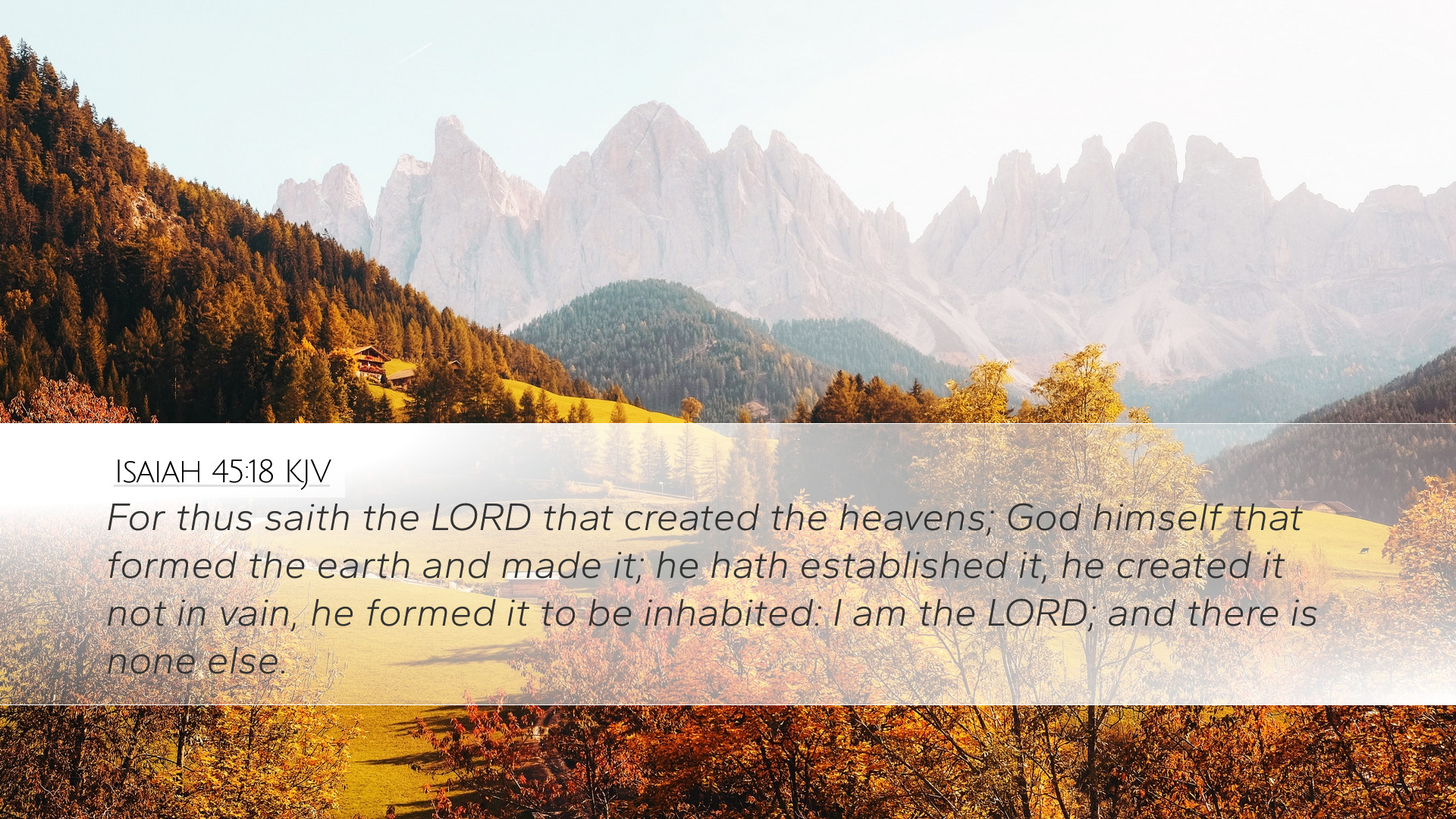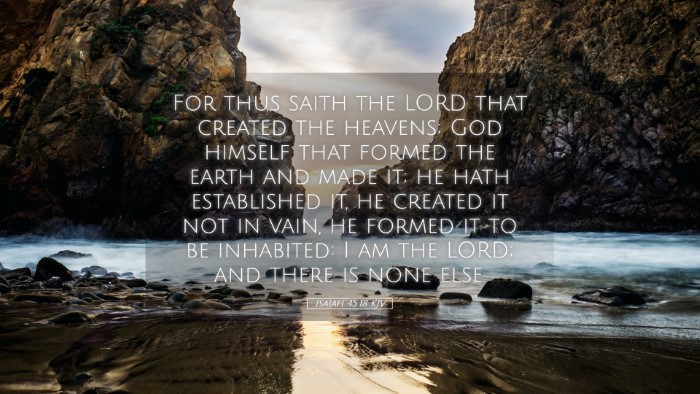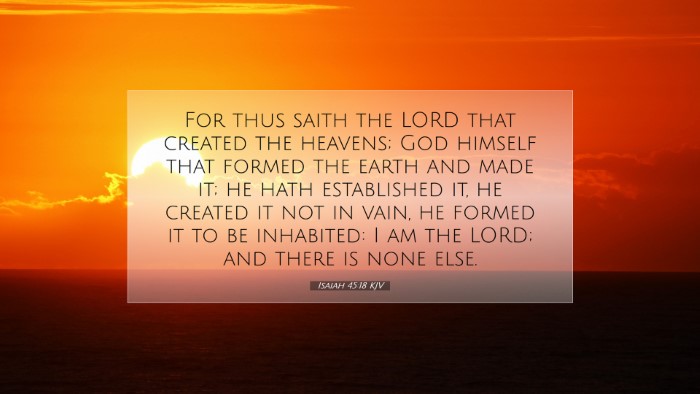Bible Verse: Isaiah 45:18
Verse: "For thus says the Lord, who created the heavens, who formed the earth and made it; who established it; who did not create it empty, who formed it to be inhabited: I am the Lord, and there is no other."
Commentary Overview
Isaiah 45:18 serves as a profound declaration of God's sovereignty and the intentionality behind His creation. This verse embodies significant theological themes that have been explored by several public domain commentators, including Matthew Henry, Albert Barnes, and Adam Clarke. Below is a synthesis of their insights.
Theological Implications
- God as Creator: The verse opens with a powerful affirmation of God as the Creator ("who created the heavens"). This asserts the preeminence of God over all creation. Matthew Henry emphasizes that God's creative power reveals His character—He is intentional and capable.
- The Purpose of Creation: The phrase "who did not create it empty" suggests that God’s creation was purposeful and filled with intent. Albert Barnes notes that the earth was formed to be a place of habitation, which reinforces the notion that God desires communion with His creation.
- Absolute Sovereignty: The concluding statement, "I am the Lord, and there is no other," underscores the exclusive nature of God’s divinity. Adam Clarke highlights that this assertion confronts the idols and gods worshipped by other nations, reaffirming that none can compare to the one true God.
Detailed Exegesis
1. Creation and Order: The structure of this verse reflects the orderliness inherent in God's creation. Henry comments that the act of creation involved forming the earth with specific intent, serving as a foundational truth for understanding human existence and divine intention.
2. The Earth as Inhabited: The notion of the earth being "inhabited" ties to the calling of humanity. Barnes elaborates on how God’s design included a relationship with its inhabitants, which contextualizes the purpose of human life within the divine plan.
3. Confrontation with Idolatry: The verse serves as a polemic against idolatry. Clarke points out that Isaiah addresses the nation of Israel, reminding them of the Lord's sovereignty in contrast to the false beliefs surrounding them. This reiteration encourages believers to maintain their faith in God alone.
Practical Application
For pastors, students, and theologians, Isaiah 45:18 is not only a statement of doctrine but also a source of encouragement and corrective teaching. Below are some practical applications drawn from the insights of the commentators:
- Encouragement in God’s Sovereignty: Believers can draw strength from understanding that God’s creation was intentional. This realization provides comfort in the midst of chaos, reinforcing faith in a purposeful God.
- Call to Stewardship: The acknowledgment that the earth is formed to be inhabited places responsibility on humanity. This call to steward creation is significant for discussions on ecological and social issues today.
- Invitation to Relationship: The intent behind creation invites believers into a deeper relationship with God. Pastoral teachings can focus on fostering intimacy with God, echoing the desire for community that He demonstrated in creation.
- Rejection of False Idols: In a modern context, proclaiming “there is no other” encourages congregants to reject contemporary idols—materialism, fame, and power—reminding them of their allegiance to the one true God.
Conclusion
Isaiah 45:18 serves as a foundational piece of scripture that reveals the nature of God as Creator, establishes the purpose of creation, affirms divine sovereignty, and invites believers to engage intimately with the divine. By weaving the insights from esteemed commentators, this exploration of the verse provides a rich tapestry of meaning applicable to theological discourse and everyday faith.


